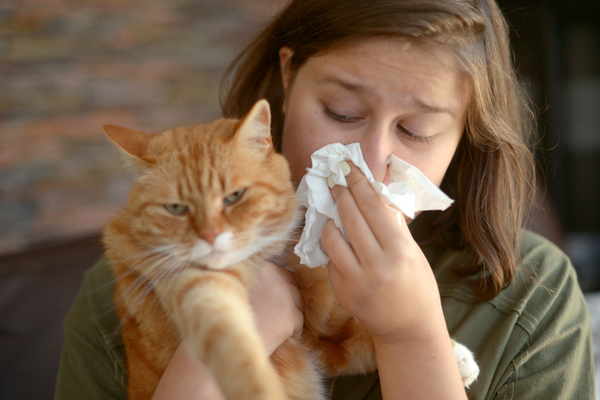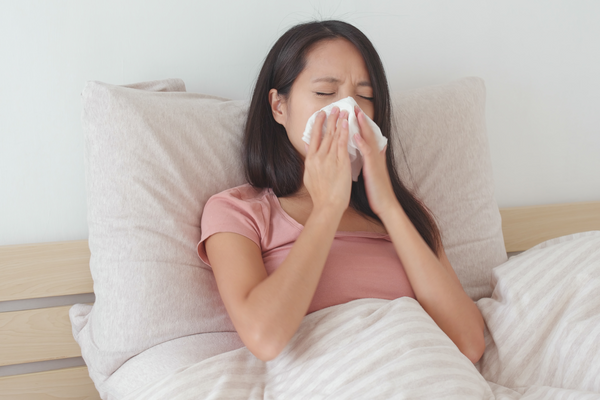Allergies and Aging – Managing Indoor Allergens in Later Years

Indoor allergies can affect people of all ages, and seniors are no exception. In fact, older adults may be more susceptible to the impact of environmental allergens due to changes in their immune system and preexisting health conditions. Recognizing and managing indoor allergens becomes crucial to maintaining the well-being and comfort of older individuals. Older adults may spend more time indoors, especially if they have mobility issues or other age-related limitations. This prolonged indoor exposure increases the likelihood of allergen exposure, making effective allergen management even more important. In this blog post, we will explore the challenges that seniors face regarding allergies and provide actionable tips for managing indoor allergens in later years.
Understanding Allergy Symptoms in Seniors
Did you know that according to the Centers for Disease Control (CDC), approximately one in seven older adults have a lung disease? It's a staggering statistic that highlights the prevalence of respiratory conditions among seniors. However, what many people may not realize is that nasal symptoms, such as sneezing and nasal discharge, often get attributed to respiratory illnesses. If your elderly loved one has a lung disease or chronic respiratory condition like chronic obstructive pulmonary disease (COPD,) it's easy to mistakenly dismiss their runny nose and sneezing as mere symptoms of their existing illness, overlooking the possibility of environmental allergies, and missing an opportunity for relief.
Additionally, indoor allergens like dust mites, pet dander, and molds can have a significant impact on respiratory health, particularly in older individuals who may already have compromised lung function or respiratory conditions such as asthma or COPD.
- Increased Sensitivity: As individuals age, their immune system undergoes changes, leading to increased sensitivity to allergens. Seniors may become more susceptible to allergic reactions, exacerbating symptoms and discomfort.
- Impact on Respiratory Health: Indoor allergens such as dust mites, pet dander, and molds can have a significant impact on respiratory health, particularly in seniors with compromised lung function or respiratory conditions.
- Sleep Disruptions: Allergies can disrupt sleep patterns, leading to poor sleep quality, insomnia, and daytime fatigue. For older adults who may already experience age-related sleep disturbances, allergy symptoms can further aggravate sleep-related issues.
If your elderly loved one experiences allergy symptoms, consult healthcare professionals for accurate diagnosis and appropriate treatment options. They can provide personalized recommendations based on individual health conditions and potential medication interactions.
Related: Are Your Allergies Worse Indoors? A Complete Guide to a Healthier Indoor Environment
Reducing Exposure to Allergy Triggers
- Identify and Reduce Allergy Triggers: Recognize the specific allergens that trigger symptoms in your elderly loved one. Common indoor allergens include dust mites, mold, pet dander, and smoke. Take steps to minimize exposure to these triggers.
- Maintain Cleanliness: Regularly clean the living environment to avoid dust buildup, using a cloth dampened with The Ecology Works Anti-Allergen Solution to neutralize protein allergens on contact. Vacuum upholstery and bedding then apply DustmiteX to kill dust mites.
- Control Indoor Environment: Keep windows closed during allergy season to prevent pollen, grass, and other outdoor triggers from entering. Encourage clothing changes after being outdoors to prevent allergens from lingering. Use our Anti-Allergen Laundry Detergent to wash clothes and bedding, neutralizing allergens. This simple yet effective routine ensures the removal of any allergens that may have clung to their garments, preventing the inadvertent spread of allergens throughout the day.
- Improve Indoor Air Quality: Utilize air purifiers with HEPA filters to remove airborne allergens. Maintain proper humidity levels in the home to discourage mold growth. Address any leaks or sources of dampness promptly. Use Vital Oxide to inhibit mold and mildew.
By proactively managing indoor allergens, older adults can significantly minimize the impact of allergies on their health and overall well-being. It's crucial to remain vigilant and identify the triggers present in the immediate environment during allergy flare-ups, taking decisive steps to reduce exposure as much as possible.
Inside the home, regular and thorough dusting and cleaning are essential to prevent the accumulation of dust and mold, both of which are common allergens. Make it a habit to stay on top of cleaning tasks, ensuring that surfaces remain free from potential triggers. Additionally, if the indoor atmosphere feels stuffy, turning on a high-powered fan can greatly improve air circulation, reducing allergen concentration and promoting a fresher environment.
By adopting these proactive measures, you can significantly reduce your elderly loved one's exposure to allergens, creating a more comfortable and allergen-free living environment. Remember, staying one step ahead and taking action to manage indoor allergens is crucial for promoting a healthier and more enjoyable lifestyle for older adults dealing with allergies.
Have questions about reducing environmental allergens or irritants inside your home or business? We have answers! The Ecology Works has been helping folks with allergies and asthma since 1993. We can help you select the products you need to live a better, allergen-free life. Please feel free to Contact Us or message us on Facebook. No question is too small! We're here to help.




